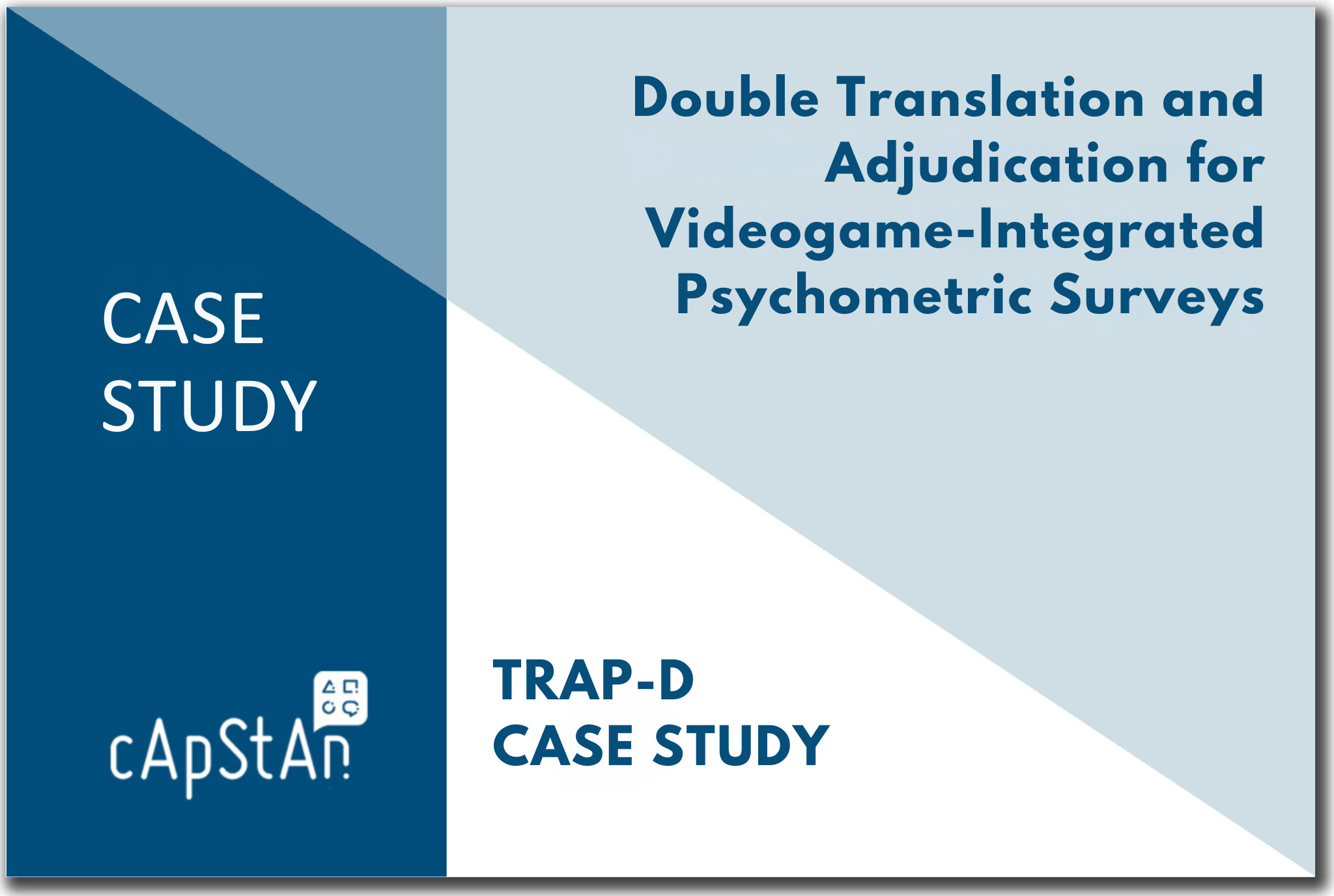
Double Translation and Adjudication for Videogame – Integrated Psychometric Surveys
About the client
The organization uses AI and other tools to help video game companies better understand the psychology of their players by natively integrating psychometric surveys into their games.
These surveys allow players to anonymously provide personality data about themselves and what they like in different games, helping the videogame companies implement better features and market more effectively.
Project Scope
cApStAn was responsible for translating the client’s personality assessment (of about 3,000 words)—with questions about demographics, values, and videogame preferences—into Japanese, French and Simplified Chinese, applying a double translation and adjudication design. Such a process is described below:
- 2 independent translators translate the same source material independently (i.e., without any collaboration)
- A senior linguist—referred to as the reconciler—then comes in, looks at both translations, and performs reconciliation, bringing the two translations into a third “idealized” one
- This is a challenging exercise, whereby the reconciler takes the best elements from each of the two translations to strive for the right balance between faithfulness to the source version and equivalence in the target language.
- Then, an adjudication meeting is organized where the two translators and the reconciler get together to discuss possible issues and interpretations, ultimately assuring that everything discussed is reflected in the translation
- Finally, a proofreader comes in to make sure any outstanding errors like spelling or punctuation are ironed out
This process is resource-intensive and rigorous, and it is regarded as the a gold standard for high-stakes assessments and surveys.

Challenges
Many of the assessment questions about a player’s values had one-word answer choices, which are deceptively difficult to translate into other languages and capture the intended denotation and connotation(s). For example, the word wisdom in English could be translated to French as sagesse (wisdom in the sense of reason) but also as discernement (having good judgment, an idea inextricably tied to wisdom)—both having different connotations, potentially not returning relevant survey data.
Thankfully, our client was highly motivated when it came to providing notes and intended definitions and connotations for their source material. For example, they clarified that to jump at an opportunity is an idiom meaning to take advantage of an opportunity, leading to the final translation not being translated with the French verb sauter (to jump), as translator 1 had proposed.
We came across a unique challenge for the Simplified Chinese version of one of the questions about player demographics, which sought to understand their online gaming activities. The question included services such as Youtube music, Soundcloud, Amazon Prime, and many others that are not legally available in Mainland China without some form of virtual private network (VPN). As a result, we had to prepare a bespoke list of services for this language version which are almost equivalent to the services mentioned in the other language versions.
Conclusions and outcomes
The client conducted a cognitive pre-test on the Japanese versions and informed us that the results were as they expected. The project was considered a success.
The time and resources invested upstream in identifying the potentially challenging terms and phrases and preparing translation guidelines for such content, helped to achieve cross-language comparability.
Want to try out this process on your materials?
Select some sample items or sample questions, and request a free pilot or contact us for more details at hermes@capstan.be.
See also, from our blog